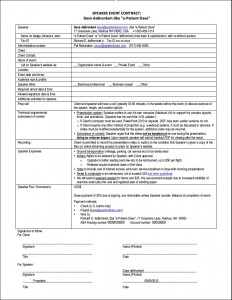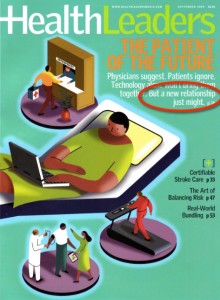Addition October 30, 2014: in comments a meaty discussion has started on a subject that’s related but different – NDA’s (Non-Disclosure Agreements). They rarely arise in speaking engagements but they can often be part of “the business of patient engagement.” Have a look if you’re interested.
 This is the latest in the Speaker Academy series, which started here. The series is addressed to patients and advocates who basically know how to give a talk but want to make a business out of it. I’ll try to be clear to all readers, but parts may assume you’ve read earlier entries.
This is the latest in the Speaker Academy series, which started here. The series is addressed to patients and advocates who basically know how to give a talk but want to make a business out of it. I’ll try to be clear to all readers, but parts may assume you’ve read earlier entries.
I’m at the Institute for Healthcare Improvement’s 25th annual forum in Orlando, participating in a day of patient speaker training. In side conversations one thing that came up is the business relationship: getting paid. And that starts with the contract.
Do you need a contract?
Contracts weren’t important for me when I had few engagements and little pay. But when things got busy I needed structure. The contract I use (at right) provides:
- A clear record of logistical details: where, when, arrival & departure, how you can list it, etc.
- A clear record of finances: fee, expense reimbursement, and down payment
- Who’s expected to be in the audience. (Today one speaker told of a case where she was sure an audience would be nurses, and found out at the last minute it was patient advisors!)
And of course in the rare case where a relationship goes sour, the contract records who owes what to whom. It’s not that you’ll end up in court – to the contrary, it keeps you out of court, because the rules are already in writing.
I also added sections for things that kept popping up as problems: [Read more…]





